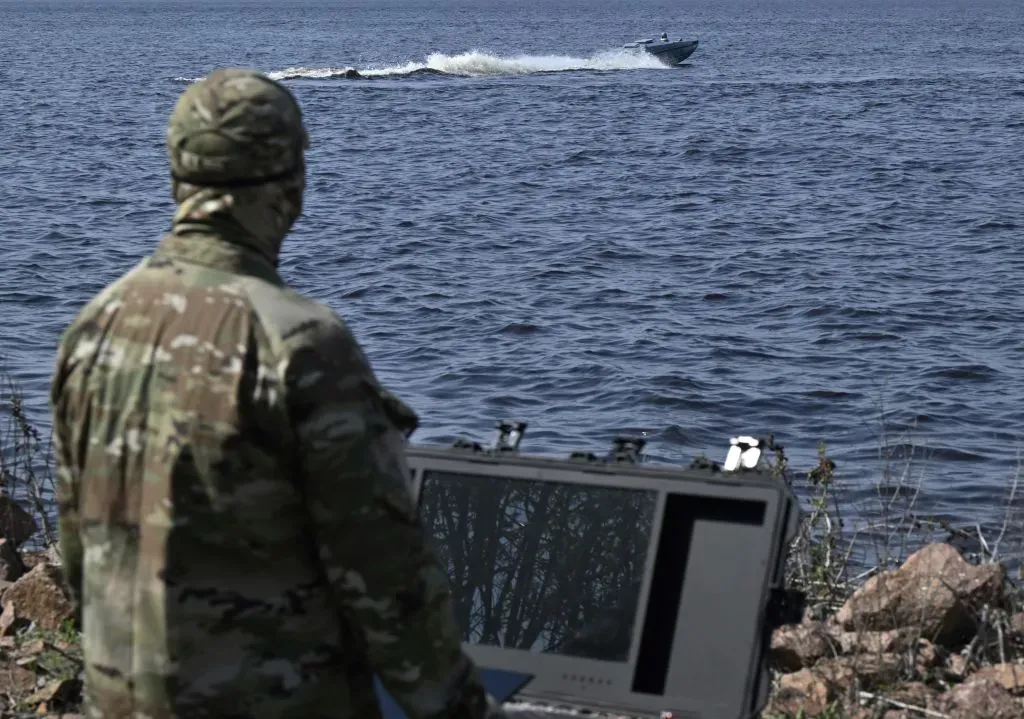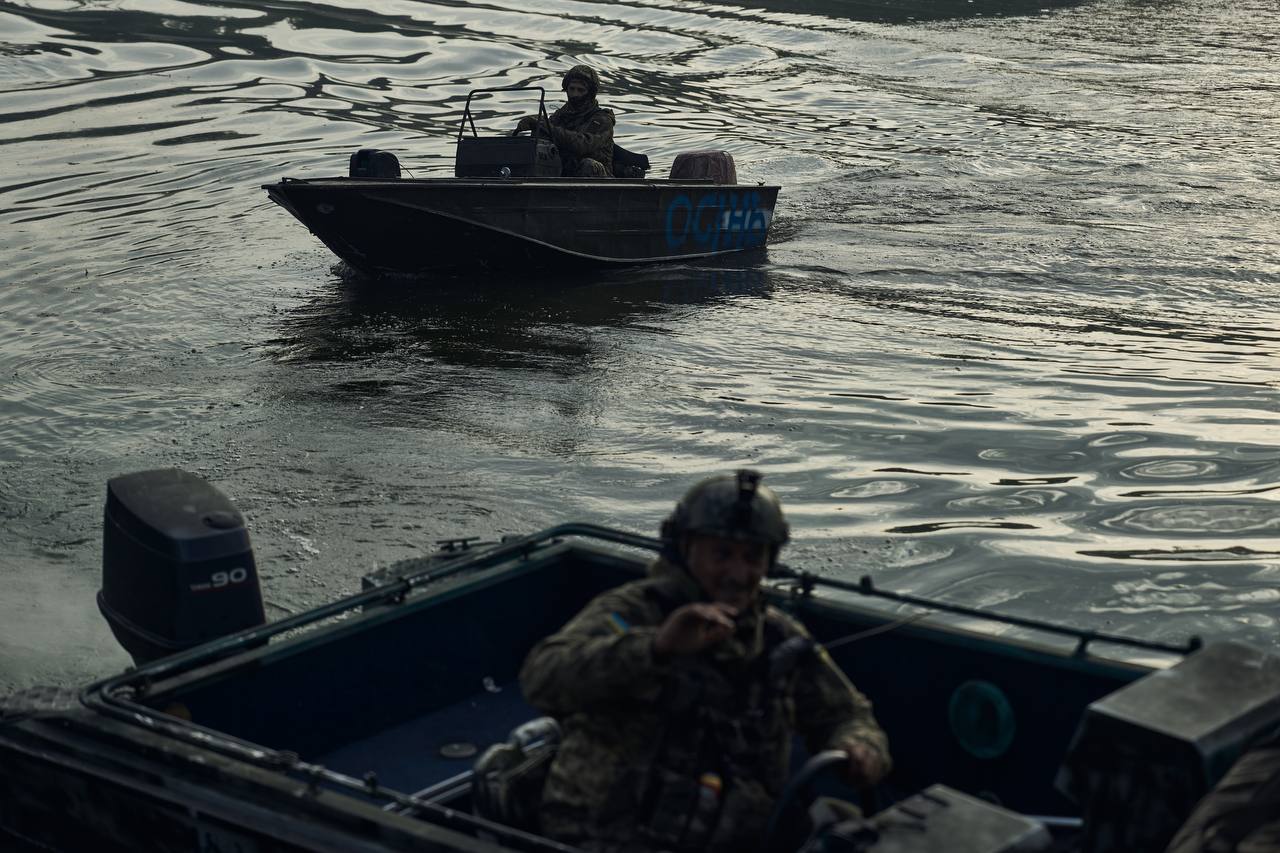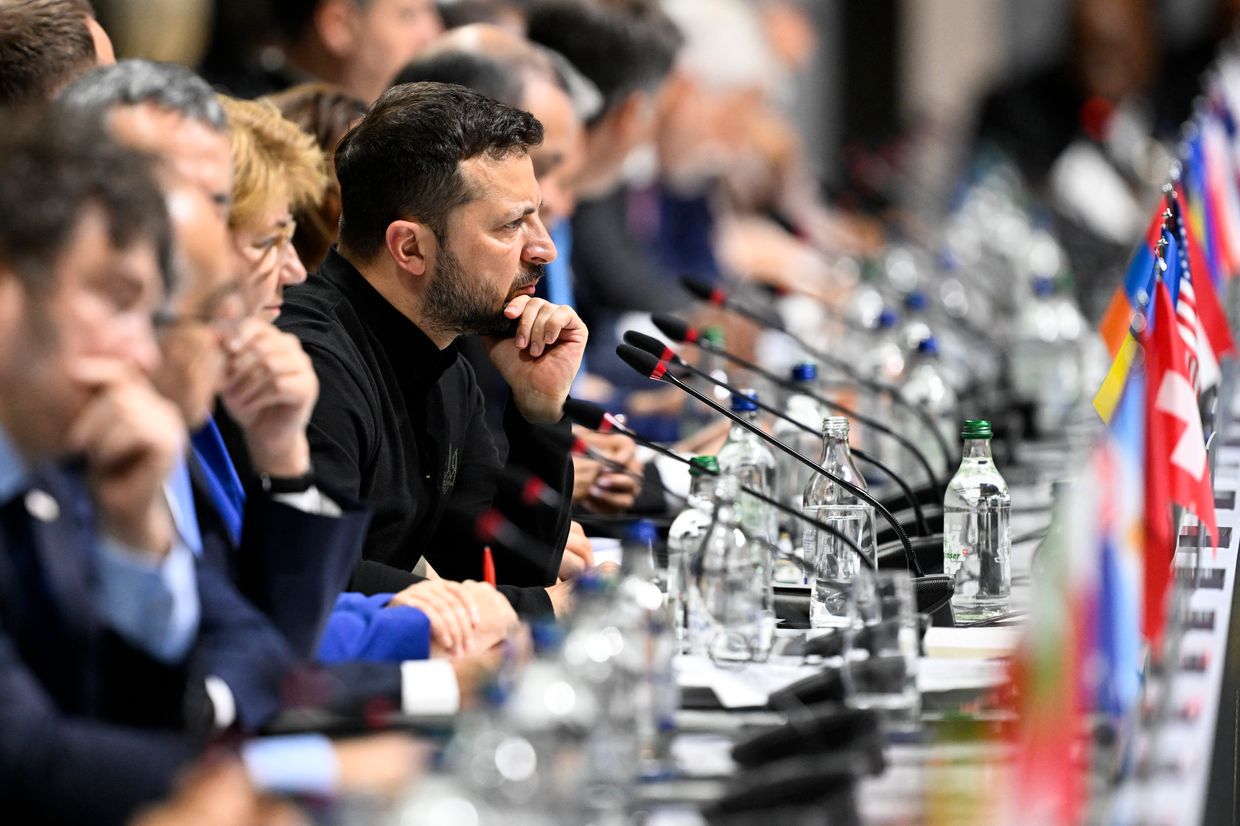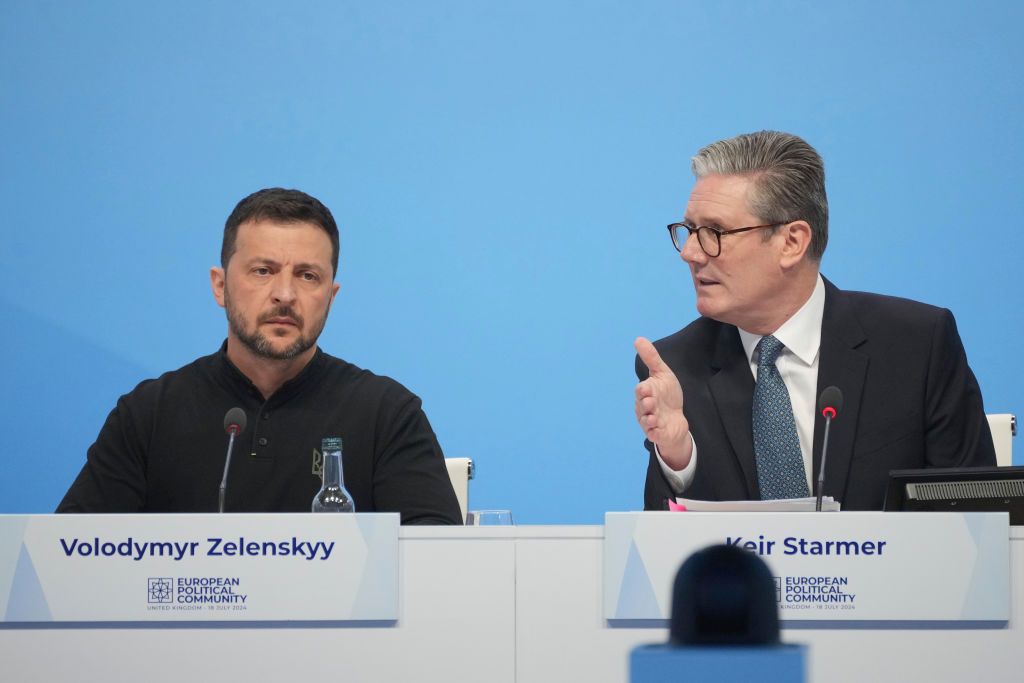Ukraine war latest: Ukrainian aerial, naval drones attack Russian base in Crimea, source says

Key developments on July 18:
- Ukrainian aerial, naval drones attack Russian base in Crimea, source says
- Ukraine confirms withdrawal from Urozhaine in Donetsk Oblast
- Ukraine signs long-term security deals with Czechia, Slovenia
- Zelensky warns European leaders that Putin may use blackmail to undermine unity
The Security Service of Ukraine (SBU) and the Ukrainian Armed Forces were responsible for a drone attack that successfully targeted a Russian coastal defense base in Crimea overnight, a source in the intelligence services told the Kyiv Independent on July 18.
Ukrainian forces attacked the base on Bay Donuzlav, around 90 kilometers (56 miles) north of Sevastopol, while Russian naval forces conducted a training exercise.
"Thanks to SBU drones, these exercises became a failure, because the Russians were unable to protect even their base, not to mention the water area of the lake," the source told the Kyiv Independent.
The attack used aerial and naval drones to strike the base, damaging the headquarters and its control point, a warehouse of ammunition and equipment, an electrical substation, and enemy firing positions, the source said.
The attack is a reminder that Crimea is "turning into a trap for the Russians," the source said.
Early on July 18, Russian occupation authorities claimed that the port city of Sevastopol came under attack by a naval drone. The Crimean Wind Telegram channel shared a video that purported to show defenses firing toward the sea against the drone.
Successful Ukrainian strikes on occupied Crimea have forced Moscow to pull out much of its naval forces from the peninsula, with the last patrol ship from Russia's Black Sea Fleet withdrawn from Crimea on July 15.
Ukraine confirms withdrawal from Urozhaine in Donetsk Oblast
Ukrainian forces have withdrawn from the village of Urozhaine in Donetsk Oblast, Lieutenant Colonel Nazar Voloshyn, the spokesperson of the Khortytsia group of forces, told Interfax Ukraine on July 18.
Earlier media reports suggested that Urozhaine, a village on the southern front line in an area of Donetsk Oblast that borders Zaporzhzhia Oblast, had been captured by Russian forces.
Ukrainian forces withdrew "due to the fact that the enemy destroyed almost everything in Urozhaine," Voloshyn said.
The decision was made "to preserve the lives and health of our personnel who were defending there," Voloshyn added.
"The settlement itself was also almost completely destroyed by enemy shelling. The positions of the Ukrainian defenders were destroyed and keeping personnel there was a threat to the lives of our soldiers."
According to Voloshyn, Russian forces suffer "considerable losses every day."
Urozhaine was liberated by Ukraine in August 2023, having been under Russian occupation since March 2022. Russia's Defense Ministry claimed on July 14 that it had recaptured the village.
Ukraine signs long-term security deals with Czechia, Slovenia
Ukraine signed 10-year bilateral security agreements with the Czech Republic and Slovenia at the Fourth European Political Community summit in the U.K. on July 18.
The two nations have joined 23 countries, including the U.S., the U.K., Germany, and France, that have signed similar bilateral treaties to help Kyiv repel Russia's aggression. The agreements are based on a pledge made by the Group of Seven (G7) last July.
Seven more such deals are expected to be signed.
Prague and Ljubljana will provide Ukraine with long-term military and non-military assistance, according to the agreements.
Czechia and Ukraine are expected to boost cooperation in the military tech sphere, including the production of ammunition, small arms, as well as drones, electronic warfare, and heavy equipment.
The two countries plan to set up joint enterprises and continue annual training of up to 4,000 Ukrainian military personnel, according to the agreement.
The Czech Republic also confirmed a partnership with Dnipropetrovsk Oblast to rebuild the region affected by Russia's war and plans to open a diplomatic mission in the city of Dnipro.
According to the document, Slovenia will allocate an additional 5 million euros ($5.4 million) for humanitarian aid, economic recovery, and the Grain from Ukraine program.
In addition, Ljubljana will facilitate training under the EU Military Assistance Mission (EUMAM) to Ukraine.
The two countries also agreed to cooperate in finding sources of funding to help realize projects in Ukraine's defense industry.
Zelensky warns European leaders that Putin may use blackmail to undermine unity
Russia may use blackmail to divide Europe and induce individual countries to break away, President Volodymyr Zelensky warned at the European Political Community summit in the U.K. on July 18.
Unity is the main European advantage, Zelensky said, according to a Kyiv Independent reporter on the ground. At the same time, Russian President Vladimir Putin may approach individual leaders to "tempt, pressure, or blackmail" them so that one "betrays the rest."
Zelensky did not name specific leaders or clarify what kind of blackmail he was referring to.
The comments came in the wake of a recent series of high-level meetings that Hungarian Prime Minister Viktor Orban held with Russian President Vladimir Putin, Chinese President Xi Jinping, and Republican presidential nominee Donald Trump. Orban and Zelensky also met in a surprise visit by the Hungarian prime minister to Kyiv.
Orban referred to the meetings as a "peace mission," but the unilateral overtures to Russia were not well received across Europe. Zelensky repeated past criticisms of Orban and the visit to Russia in coded terms in his July 18 speech.
"If someone in Europe tries to resolve issues behind others' backs, or even at the expense of someone else, if someone wants to make some trips to the capital of war, to talk and perhaps promise something against our common interests or at the expense of Ukraine or other countries, then why should we consider such a person?" Zelensky said.
"The EU and NATO can also address all their issues without this one individual."
Earlier in July, Zelensky said that Orban's unilateral peace mission could not succeed in creating a peace deal, arguing instead that only "serious and strong alliances" could be effective mediators between Russia and Ukraine.
Ahead of the global peace summit in June, Zelensky warned that Russia was blackmailing global leaders to disrupt the summit and decrease participation.
















